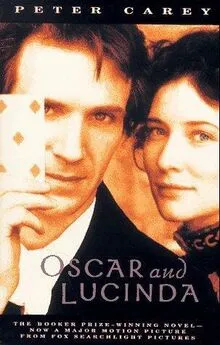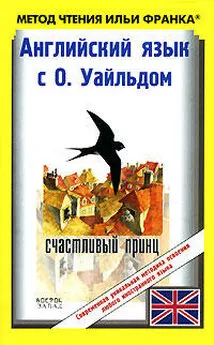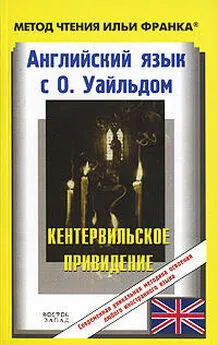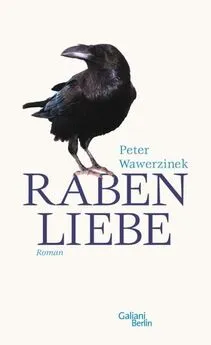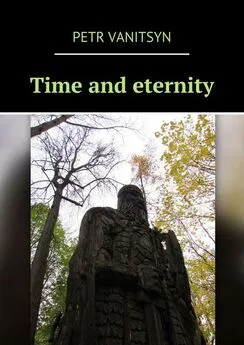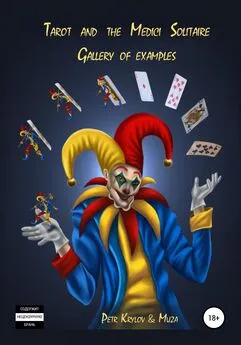Peter Carey - Oscar and Lucinda
- Название:Oscar and Lucinda
- Автор:
- Жанр:
- Издательство:Vintage Books
- Год:1988
- Город:New York
- ISBN:0-679-77750-4
- Рейтинг:
- Избранное:Добавить в избранное
-
Отзывы:
-
Ваша оценка:
Peter Carey - Oscar and Lucinda краткое содержание
The Booker Prize-winning novel-now a major motion picture from Fox Searchlight Pictures.
This sweeping, irrepressibly inventive novel, is a romance, but a romance of the sort that could only take place in nineteenth-century Australia. For only on that sprawling continent-a haven for misfits of both the animal and human kingdoms-could a nervous Anglican minister who gambles on the instructions of the Divine become allied with a teenaged heiress who buys a glassworks to help liberate her sex. And only the prodigious imagination of Peter Carey could implicate Oscar and Lucinda in a narrative of love and commerce, religion and colonialism, that culminates in a half-mad expedition to transport a glass church across the Outback.
Oscar and Lucinda - читать онлайн бесплатно полную версию (весь текст целиком)
Интервал:
Закладка:
He took out his set of brushes and his hand mirror from the little cedar drawer. He brushed hard at his wiry red hair and tried to make it appear more civilized, but the more he brushed, the more it stuck out sideways. When he had finished his toilet, the top of his head resembled the foliage of a windblown tree. He located the lost collar stud and remedied it. He noticed the beginnings of a small pimple on his nose. He found a porcelain pot of pomatum (intended to subdue hair), opened it, sniffed it, and closed it up again.
He opened the soldering box and took out the wrapped caul. He crammed this in the side pocket of his jacket. It did not do anything to diminish his phobia. He then set out to ascend the stairs to the
Lure
first-class promenade. Once he was up there he enquired of Miss Leplastrier's stateroom so dolefully that the steward who escorted him there imagined not a phobia but a serious spiritual crisis.
56 Lure
Lucinda took her pack of cards and shuffled them. Their waxing was bright and new and the inks shone bright beneath, like coloured stones in an aquarium. She stood in front of the pretty walnut table and dealt herself a hand for poker. She stood hard against the table, its edge pressing her thigh. She splayed the five cards, face down, then turned one over with her fingernail. King of spades. She turned it back. Her hands were actually aching. She pressed them hard together. She walked around the table and stood opposite the five splayed cards. She dealt five more. She cut the pack. She turned up a three of diamonds. She stood looking at the table. If she had been seated at the place the cards suggested she might have looked across her opponent's shoulder at the moonlit millpond of the sea. But had she actually played those cards, the sea would not exist. Nothing would exist but that small spherical world of which the cut pack was the exact geometrical centre.
She walked to her bureau. It was a definite walk with nothing dreamy about it. She took her purse from the bureau drawer. She carried it to the table. She spilled its contents on to the tablebig pennies, chunky sovereigns, pound notes, a single "fiver." She walked around the room then, circling the table in her stockinged feet. There were men playing cards in earshot. Let them see they were not alone in their passion. She tugged a cord, a red rope with a gold tassel on its end. This was to summon a steward. But when the steward came, his eyes refused to see the lovely lure she had constructed for him. He left the stateroom and returned with tea things on a silver
Oscar and Lucinda
tray. He did not avoid her gaze, nor did he meet it especially. He wished the young lady a pleasant good night. She had made a fool of herself twice in one day. 57 Confession
When she found Mr Hopkins standing in her doorway, the first thing she thought, when thought came, was-the cards. She had laid them as a bait, but not for him, for anyone but him. But there was a moment, before this, when she did not think at all. Her mouth echoed the open door. And then she thought: The cards. He must not see the cards, or money either. There were coins and notes, a fiver as purple as a bishop's vest-it was such a luminous colour, like flowering lasiandra, signalling invitations to stumble-footed insects which would help it mate without knowing what they did. All this was calculated to catch the eye, but not this eye, another one. She thought: What a dear face. The extreme delicacy and refinement of the face impressed itself on her. She did not, not yet, question the propriety of this visit, unchaperoned to her room; that would come in a moment, and with it anxiety, like a draught of hot whisky. She had completely forgotten her request for confession. She saw only the very pleasant man she had feared driven away by her forwardness.
"Do come in." These were the only words that either of them spoke. She tried to lead him into the curved corner of the stateroom, further from the game of poker. She thought to point out the luminescent sea. She knew herself favoured with 'landscape windows" and thought to make a conversation of the fact. But he literally turned his back upon them, and moved like a crab in the opposite direction, finding his way into a chair like a blind man, at the very table she did not wish him to sit.
She was aghast, too much in terror about having her vice discovered
01A
Confession
to think his behaviour peculiar. She noticed perspiration on his brow, but it did not come to her mind until much later, when the incident was over.
She thought it odd he did not excuse himself for sitting while she stayed standing. "You must excuse me," he said instead, "for not corning earlier." She smiled and bowed her head. She remained standing so that his eyes, in looking up at her, would not fall upon what was on the table in front of him. He had seen already. He must have seen already. And yet, it seemed, he had not. What was he talking about? Coming earlier? On deck? She wondered if she might find a cloth to throw across the table.
"You see," he said, "I have a phobia about the ocean. It is something I have suffered from since very young. My father is a naturalist, you know, and was in the ocean all the time, and I with him, too, when I was a little chap."
"I see." She did not see. He was agitated and sweating, but she did not notice. She was like someone hearing Spanish when she expected Greek. He had picked up a card from the table and was toying with it.
'In any event I developed a nervousness about it, like the nervousness some get with heights. So to accompany you on deck this evening, or to come up here, with all this glass-to hear your confessionwell, I feared it was more than I could manage."
But she could not confess to him. She wished only his good opinion.
"This is not known to Mr Smith or Mr Borrodaile," he said.
"Frankly, I would prefer they did not hear it. But I owe you an apology for not answering your call to confession when, as you see, I was capable of coming all the time.''
But she must not confess. She wished he would put down the card. (Surely he knew what it was.) She repeated what she had heard from George Lewes, although she did it at ten times his lumbering speed that the Queen had been praying with Presbyterians at Crathie and was becoming passionate about the dangers of genuflexion and confessions. So confession was, she argued, unwise.
"Ah, yes," he said, "the Queen. And yet, you see," (and here he bounced his leg beneath the little table so you might actually hear the coins jingling) "it is not enough she does not like it, because the Church of England has it written into the prayer book and it will take more than the Queen, more than our Lord-it will take an Act of Parliament-to get it out again. I do not support this way of running things, Miss Leplastrier, but you may confess as you
Oscar and Lucinda
wish and know yourself completely free from heresy."
Oscar had a tiny prayer book, just three inches high and two inches across. He was flipping this open in a practiced way, as though he heard confessions every day.
Lucinda was now in a panic. She could not confess to this young man. She could see his wristslong white bridges to beautifully shaped hands-and a little bruised shin showing between rumpled sock and trouser turn-up. He had a heart-shaped face, like an angel by Dante Gabriel Rossetti. She could not confess to him, and yet the ceremony had already started. He had a soft burr of West Country in his vowels. She thought she had no voice at all. It was time for her to speak. She heard a voice out on the deck. It was the Belgians crying for their Pomeranian. She clasped the back of the chair in her hands. She felt her voice very small. She watched his shoe and shin protruding like a branch from beneath the table. The shoe bounced up and down. The shoe did not match the sacrament, but when she looked up and saw his hair like the hair of angels and very still, limpid grey-green eyes, she confessed. She talked so quietly he had to lean forward to hear her.
It was a little silver voice you could fit in a thimble. It did not match the things it said. The shoe stopped bouncing. The penitent had closed her heavy lids across her eyes. She spoke swiftly but quietly, in a silvery sort of rush.
She confessed that she had attended rooms in Drury Lane for the purposes of playing fan-tan (although she had fled when stared at).
She confessed to playing a common dice game on a train full of "racing types," and although she had not gone to the races, she had boarded this train, having read that such things occurred in such trains, for the express purpose of playing dice. She had been asked to leave the game because her sex was apparently repulsive to the patrons.
She had tried to persuade Mr Paxton to take her to a cock fight.
She had eavesdropped on stewards. She had set up a table in her room like a trap for them. She had wished to play poker.
There were other matters but her confessor hardly heard them. He sat with his head bowed, trying to still his wildly beating heart. He clenched his hands and pressed them down between his legs. He groaned.
Lucinda heard this noise. She sat with her head bowed, not daring to look at him. She waited for absolution. She heard another noise, muffled, its meaning not clear. She thought, He will not be my friend now. She clenched her eyes shut to drive out such temporal thought,
Confession
clenched them so tight that luminous bodies floated through the black sea of her retina.
When Oscar tried to think good thoughts he always thought of his father. He did this now: it was this that made him groan-the loneliness he had caused this stern and loving man. The voices of the stewards came through the ventilation, but neither of them listened. Still, the priest withheld absolution.
"This dice you played on the train," he asked, "was it Dutch I Hazards?"
I Lucinda looked up quite sharply, but the priest's head was bowed
it and twisted sideways towards his right shoulder. "Yes," she said. "It I was. We also played another game."
I "Old British, perhaps."
I Lucinda felt her bowed neck assume a mottled pattern. "In New I South Wales," she said, "it is known as 'Seventh Man.' " Her feelings were not focused, were as diffused as a blush, a business of heat and blood. Oscar could not keep the picture of his father clear. A certain reckÎ. less joy-a thing without a definite form, a fog, a cloud of electricity -
replaced the homely holy thoughts.
: "And who was it," he asked, unclenching his hands and bringing them up on to the table, "who provided the Peter?"
Lucinda Leplastrier put her head on one side. She opened her eyes. Her confessor had a blank face, what was almost a blank face, but was prevented from being completely blank by the very slight compression of the lips.
Lucinda narrowed her green eyes. "The Peter?" 'Is the term unknown to you?" She was looking at the mouth. She could not quite believe what she saw there. "No," she said, very carefully. "No, I think it is quite
Читать дальшеИнтервал:
Закладка:
